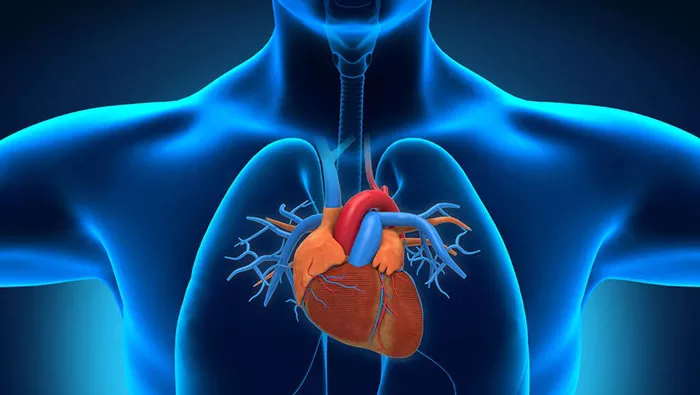Myocarditis, an inflammation of the heart muscle (myocardium), is a condition that can lead to significant cardiac dysfunction and even heart failure. While various factors, including viral infections, autoimmune diseases, and certain medications, can cause myocarditis, the potential link between exercise and myocarditis is an area of growing interest and concern, particularly among athletes and physically active individuals. This article delves into the relationship between exercise and myocarditis, examining how exercise might influence the development and progression of this condition.
What Is Myocarditis?
Myocarditis occurs when the myocardium, the muscular layer of the heart, becomes inflamed. This inflammation can be caused by a variety of pathogens, including viruses (such as Coxsackievirus, adenovirus, and parvovirus B19), bacteria, fungi, and parasites. Non-infectious causes include autoimmune diseases, hypersensitivity reactions, and toxic reactions to drugs or chemicals.
The Relationship Between Exercise And Myocarditis
Exercise-Induced Myocarditis: Is It Possible?
While exercise is generally beneficial for cardiovascular health, there is evidence to suggest that strenuous or excessive exercise might contribute to the development or exacerbation of myocarditis under certain conditions. The relationship between exercise and myocarditis can be understood through several mechanisms:
Immune System Modulation:
Acute Exercise: Moderate exercise can enhance immune function, potentially helping to prevent infections that might lead to myocarditis.
Chronic, Intense Exercise: Prolonged and intense exercise can suppress the immune system, making the body more susceptible to infections. In athletes, this immune suppression might increase the risk of viral infections that can cause myocarditis.
Viral Replication:
Intense exercise during an active viral infection can increase viral replication and dissemination, potentially leading to myocarditis.
Studies have shown that vigorous exercise can exacerbate viral myocarditis in animal models.
Inflammatory Response:
Exercise induces a physiological stress response that includes the release of stress hormones (e.g., cortisol) and inflammatory cytokines. In the context of an existing infection, this inflammatory response might worsen myocardial inflammation and damage.
Risk Factors And Populations at Risk
Certain populations may be at higher risk for exercise-induced myocarditis, including:
Athletes:
Competitive athletes often engage in high-intensity and prolonged exercise routines, which can place significant stress on their cardiovascular systems. Studies have documented cases of myocarditis among athletes, often linked to viral infections exacerbated by intense physical activity.
People with Pre-existing Conditions:
Individuals with a history of viral infections, autoimmune diseases, or other conditions that predispose them to myocarditis should be cautious about engaging in strenuous exercise, especially during periods of illness.
Young Adults:
Young adults, particularly males, are more likely to develop myocarditis compared to other demographic groups. This population might also be more engaged in high-intensity sports and exercise, increasing their risk.
Case Studies And Evidence
Numerous case studies and research findings highlight the potential link between exercise and myocarditis:
Athletes and Myocarditis: A study published in the Journal of the American College of Cardiology found that myocarditis was responsible for a significant proportion of sudden cardiac deaths in athletes. The study suggested that viral infections exacerbated by intense training regimens could be a contributing factor.
Animal Models: Research involving animal models has demonstrated that exercise can worsen viral myocarditis. In these studies, animals infected with myocarditis-causing viruses showed increased myocardial inflammation and damage when subjected to strenuous exercise compared to those that were not exercised.
Preventive Measures
Given the potential risks, several preventive measures can help mitigate the risk of exercise-induced myocarditis:
Avoid Exercise During Illness:
Individuals should avoid strenuous exercise if they are experiencing symptoms of a viral infection, such as fever, fatigue, or muscle aches.
Rest is crucial to allow the body to fight off the infection and reduce the risk of myocarditis.
Gradual Progression of Exercise Intensity:
Gradually increasing the intensity and duration of exercise can help the body adapt without causing excessive stress on the heart and immune system.
Regular Health Check-Ups:
Athletes and individuals engaging in high-intensity exercise should have regular medical check-ups to monitor their cardiovascular health.
This is particularly important if they have a history of viral infections or other risk factors for myocarditis.
Awareness and Education:
Educating athletes, coaches, and the general public about the signs and symptoms of myocarditis and the importance of not exercising while ill can help prevent cases of exercise-induced myocarditis.
Treatment And Management
If myocarditis is suspected, prompt medical evaluation is essential.
Treatment strategies may include:
Rest and Reduced Physical Activity:
Rest is a cornerstone of myocarditis treatment, allowing the heart to recover without additional stress from physical activity.
Medications:
Depending on the cause and severity of myocarditis, medications such as anti-inflammatory drugs, antivirals, or immunosuppressants may be prescribed.
Monitoring and Follow-Up:
Regular follow-up with a healthcare provider is crucial to monitor the progression of the disease and the heart’s recovery.
In severe cases, hospitalization and more intensive treatments may be required.
Conclusion
The potential link between exercise and myocarditis underscores the importance of balancing physical activity with adequate rest and recovery, particularly during periods of illness. While exercise is generally beneficial for cardiovascular health, excessive or intense exercise during an active infection can increase the risk of myocarditis. Awareness, preventive measures, and prompt medical attention are key to minimizing the risks and ensuring a safe and healthy exercise regimen.
By understanding the relationship between exercise and myocarditis, individuals can make informed decisions about their physical activity and overall health.

